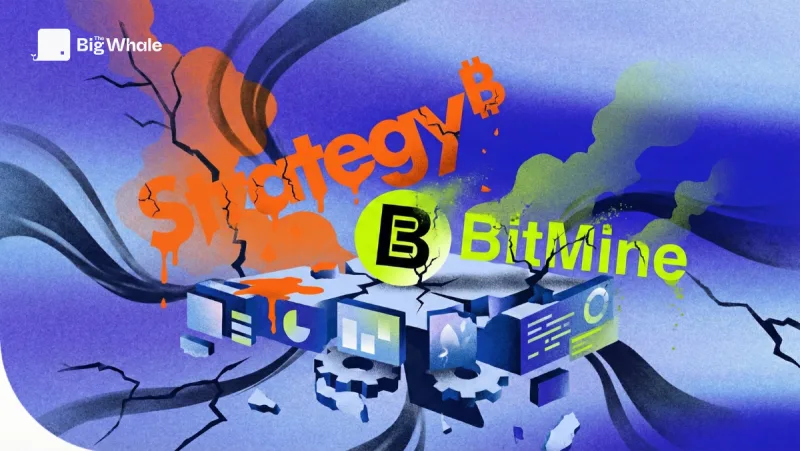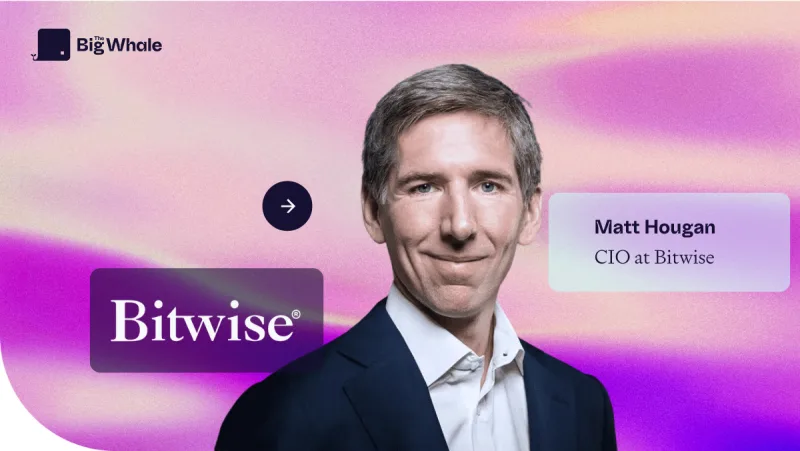TBW - Legion vs Echo: The battle of the new funding platforms for crypto projects

One of the major objectives of the crypto sector is to simplify capital formation while democratising access to investment opportunities, particularly on private markets. This ambition was illustrated as early as 2017 with the explosion of Initial Coin Offerings (ICOs), enabling many projects to raise amounts often disproportionate to their level of maturity and economic fundamentals.
Subsequently, specialised platforms emerged to offer projects a way to raise funds directly from the public. CoinList, for example, has established itself as the leader in community sales: investment rounds open to the public before the tokens are put into circulation. These sales allow participants to benefit from shorter token release periods than those imposed on venture capital funds or business angels. Some of these sales have generated spectacular returns for their participants, as was the case for Solana, Ondo, or Near.
However, CoinList has many limitations. This centralised platform holds users' funds directly, charges high fees and offers a user experience that is often criticised. In addition, it focuses almost exclusively on community sales, restricting the type of opportunities on offer.
In parallel, 2024 marked a worrying trend: many tokens were launched without allowing the general public to benefit from the initial growth phases. Private investors benefited from exclusive access to attractive valuations, while end users were only able to buy at prices deemed excessive once the tokens were introduced on the exchange platforms.
Echo and Legion then emerged to respond to this challenge and make it possible to democratise project financing to a wider audience.
Echo: facilitating the sharing of opportunities within different communities
Cobie, one of the former founders of Lido, launched Echo in March 2024.
Echo is not for everyone and is only accessible to qualified investors. In the context of the European Union, a qualified investor is a person who meets at least two of the following criteria:
- The size of their financial portfolio, including cash deposits and financial instruments, exceeds €500,000.
- They have carried out transactions of a significant size in investments in private start-ups and/or investments in digital assets, at an average frequency of 10 per quarter over the last four quarters.
- She has worked in the financial sector for at least one year in a professional role requiring knowledge of private start-up investments and/or digital asset investments.
Echo operates through groups where each owner has exclusive control over access to their group. These owners share investment opportunities with their members, creating targeted and exclusive investment circles.
In the majority of cases, the groups are run by business angels, incentivised to share their opportunities through performance fees that they define themselves. Echo also charges a 5% performance fee on all opportunities offered on the platform. This performance fee model ensures an alignment of interests between all parties, as these fees are only charged if the investment is successful. What's more, group owners can only share investment opportunities in which they are also participating, allowing for initial screening.
In addition, Echo offers thematic groups dedicated to specific ecosystems, such as Abstract, Monad or MegaETH blockchains. These groups allow members to gain exposure to the growth of these ecosystems while aligning their long-term interests with the projects supported.
Echo's flexibility is also reflected in the diversity of opportunities on offer: from pre-seed funding alongside professional investors, to community funding, often on more advantageous terms than in previous rounds. Echo is unique in that all investment opportunities are private. It is therefore legally forbidden to mention them before they have been finalised; even the project raising the funds is not allowed to communicate about its operation before it has been completed.
Echo operates on a self-custody basis: users have their own smart wallet associated with their account deployed on the Base blockchain. Investments are made only in USDC and are based on a "first come, first served" model. As a result, we sometimes see fundraisings that are over in a matter of seconds, where users are uncertain whether they will succeed in making their investment.
Legion: a merit-based community platform
Legion was launched in the second half of 2024 and is now accessible in many countries, including those in the European Union, with the only restriction being the requirement to go through a KYC process. In addition, projects that raise funds via Legion are able to communicate publicly about their deals, increasing their visibility.
In contrast to Echo, where group owners have to source and select investment opportunities themselves, Legion centralises this process: the platform team is responsible for sourcing and validating all proposed opportunities. However, Legion has indicated that this model could evolve in the future, and this could be achieved through the introduction of a token. Indeed, several clues such as job descriptions suggest that Legion is planning to launch its own token.
The platform is based on a merit system, structured around four main criteria:
- On-chain activity
- Presence on social networks
- Activity on GitHub
- Added value as an investor (this last criterion is not yet taken into account, and little information is available about it).
Each user is given a score out of 1000, designed to reflect their merit and influence their ability to participate in investments.
Investing on Legion follows a multi-stage process. Users consult the project details and indicate their intention to invest, specifying a minimum and maximum amount. A few days later, the project team examines the applications and selects those it wishes to accept. It also determines the amount allocated to each investor, relying in particular on the merit scores and achievements of the applicants to give preference to the most committed members of its community.
This model gives projects greater control over the selection of their investors, while avoiding the speed race of the first-come, first-served model. What's more, no visible fees are applied to users.
For the time being, Legion appears to focus primarily on investment opportunities in relatively mature projects, with token launch times generally under a year.
Like Echo, each account on Legion is linked to a self-custody wallet, giving users total control over their assets. However, Echo abstracts gas fees whereas it is necessary to have ETH in one's Legion wallet to carry out transactions. In addition, fundraising on Legion takes place on different blockchains depending on the project, which adds another layer of complexity.
2025: towards a return of ICOs?
It is essential to remember that this type of investment carries a high level of risk. A project that raises funds may not succeed and never launch its token, exposing participants to a total loss of their investment. What's more, these investments require a planned strategy over several years, as the capital invested generally remains locked up for long periods.
Despite these risks, Echo and Legion very quickly achieved notable success. This success is illustrated by investment opportunities that are often filled within seconds or oversubscribed by up to 27 times the amount initially raised. Although these two platforms have distinct approaches, they complement each other by tackling a major problem: the general public's lack of access to private investment. Echo targets qualified investors and offers riskier investments, while Legion targets a wider audience by offering opportunities that are more likely to succeed.
In addition, they offer projects an interesting alternative to traditional funding models. Rather than carrying out airdrops, where tokens are often resold as soon as they are launched, Echo and Legion allow projects to surround themselves with a committed community that is genuinely "skin in the game" and whose interests are aligned over the long term.
A project that succeeds in enriching its community in a tangible way benefits from increased retention and a solid user base, valuable assets for its growth and sustainability. A number of projects have used Echo or Legion to raise funds at more advantageous valuations and terms than in their previous rounds of financing from professional funds.
Beyond simple financing, investors can contribute directly to a project's success by making available their network, knowledge and commitment as active users. Some investment funds are criticised for their lack of involvement or for behaviour that is considered predatory. Faced with this, it is increasingly natural for projects to favour their community as a source of funding, thereby aligning interests over the long term.



